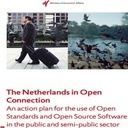SIGINT10 - final10
SIGINT 2010
Konferenz für Netzbewohner, Hacker und Aktivisten
| Referenten | |
|---|---|
|
|
Arjen Kamphuis |
| Programm | |
|---|---|
| Tag | Day 3 - 2010-05-24 |
| Raum | Konferenzraum (MP6) |
| Beginn | 16:00 |
| Dauer | 00:45 |
| Info | |
| ID | 3823 |
| Veranstaltungstyp | Vortrag |
| Track | Aktivisten |
| Sprache der Veranstaltung | englisch |
| Feedback | |
|---|---|
|
Haben Sie diese Veranstaltung besucht? Feedback abgeben |
Opensource policies for governments
What we learned in the Netherlands

Most European governments are busy migrating important components of their IT-systems to opensource alternatives. The Netherlands was the first western country to develop a comprehensive policy for its entire public sector in 2007 but is lagging its neighbors in working implementations. The comprehensive policy in the Netherlands is focused on the practical advantages of open systems such as interoperability and lower cost and no vendor-lock, these reasons are also shared by policies in the UK and Denmark. German, Spanish and French policies seem to have a more political dimension by also stressing national independence of critical systems and the possibility of code-audits as important reasons for going the open route. By comparing Dutch progress (and sometimes lack thereof) with our neighboring countries some lessons can be learned about what policies work and what some of the required conditions are for them to work in different political and IT-legacy environments.
Most European governments are busy migrating important components of their IT-systems to opensource alternatives. The Netherlands was the first western country to develop a comprehensive policy for its entire public sector in 2007 but is lagging its neighbors in working implementations. The comprehensive policy in the Netherlands is focused on the practical advantages of open systems such as interoperability and lower cost and no vendor-lock, these reasons are also shared by policies in the UK and Denmark. German, Spanish and French policies seem to have a more political dimension by also stressing national independence of critical systems and the possibility of code-audits as important reasons for going the open route. The differences in approaches; the more utilitarian vs the more political seem to match (somewhat) the size of the countries and the level of political intimacy with the US. The US being the primary economic, and possibly strategic, benefactor of European technological dependence on proprietary software (according to a 2006 Eu study the EU imports about $100 billion worth of proprietary software licenses from the US).
Some recent migration projects in the Netherlands have failed because of a lack of a clear political mandate. The projects were mere technical exercises and when they ran into technical problems (chiefly caused by lack of interoperability on the side of the proprietary legacy systems) they were halted. On the other hand there are the cases of Munchen and the French Gendarme who have followed through despite technical setbacks in the short term because of a clearer political vision underlying the reasons for doing the migrations in the first place.
By comparing Dutch progress (and sometimes lack thereof) with our neighboring countries some lessons can be learned about what policies work and what some of the required conditions are for them to work in different political and IT-legacy environments.
